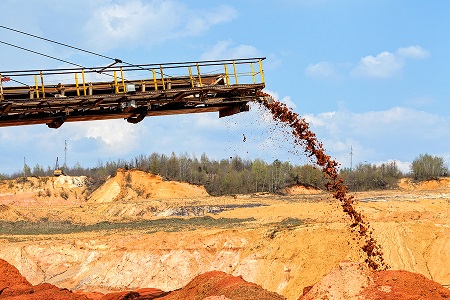The budget deficit this financial year will be $40.4 billion – more than $10 billion larger than the figure forecasted in May – and is set to continue for at least four more years.
Next year's deficit will be $31.2 billion (19 per cent of GDP), and for 2017-18 the deficit will be $11.5 billion.
Figures 'not massaged'
Treasurer Joe Hockey said the government had made a good start.
"There is more work to be done but we are on the right track," he said.
"Rather than never-ending deficits, the Budget is on track for a credible surplus. We are being cautious but realistic in relation to our underlying assumptions.
"There's no massaging the numbers here, none at all."
The figures revealed the government will get $31.6 billion less in tax receipts over the next four years, a fall due, amongst other things, to a 30 per cent collapse in iron ore prices and a 20 per cent fall in wheat prices. Weaker growth in wages, which at 2.5 per cent is a 15 year low, has been forecasted to lower tax receipts by $2.3 billion this financial year.
"We are now witnessing the largest fall in the terms of trade since records were first kept in 1959," Hockey said.
"This has been faster and deeper than anyone expected.
"Our nation's export income has not been what we expected."
Hockey said – despite the figures – newer, higher taxes simply weren't an option.
"To try and recover these falling revenues now through newer higher taxes would unquestionably harm the Australian economy," he said.
Surplus put off to the "never never"
The Opposition slammed the Budget update, saying the surplus delay was another broken promise from the Coalition and had been put off to the "never never".
"Clearly that is not what the Government promised. The Government promised a return to surplus and they made that the centrepiece of their election campaign," Shadow Treasurer Chris Bowen said.
The need to rebalance
Ai Group CE Innes Willox said the outlook indicated the economy's "increasing vulnerability to the global cycles of the resources sector".
"Both the forecasts for the fiscal position and economy clearly demonstrate why we need a stronger and more diversified growth base," Willox said in a statement released on Tuesday (16 December).
"The Australian economy is in critical need of rebalancing. This is becoming increasingly apparent with the pressures on manufacturing as highlighted by the closure of local car assembly industry over the coming years."
Concerted effort required
Willox said the task of doing so was bigger than the political cycle, instead it would rely on a coalition of business, industry and all levels of government.
"Before the next Budget in May next year, the Government needs to build the case for substantial spending and tax reforms, in order to put the Budget on a stronger footing and to reduce its reliance on windfalls from high commodity prices.
"China and our other trade partners are slowing. Locally, house construction is improving but will not be enough to push growth higher.
"We must find multiple sources of growth, rather than relying solely on resource and energy commodities, as has occurred in recent years.
"Put simply, other parts of our economy need to step up their investment, employment and productivity if we are to improve incomes and living standards across the community."
Budget sustainability
Willox said the MYEFO also highlighted the challenge facing the Government to ensure the Budget was sustainable.
"The fiscal challenges are essentially long-term and structural. Addressing this structural deficit requires building public support for significant changes in programs and in taxation," he said.



